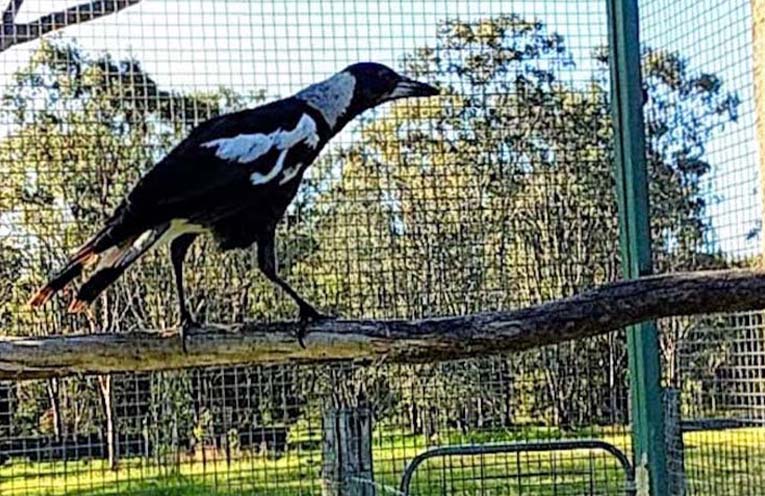
THE magpies found dead or dying in Bonny Hills in November were poisoned, according to toxicology results released by the Environment Protection Authority (EPA).
Its testing of some of the dozen native birds found on a residential street on 19 November, ruled out avian influenza but revealed toxic levels of pesticides.
 Advertise with News of The Area today.
Advertise with News of The Area today.It’s worth it for your business.
Message us.
Phone us – (02) 4981 8882.
Email us – media@newsofthearea.com.au
EPA Director of Operations John Forcier, said this suggests the poisoning may have been deliberate.
“Several chemicals were identified, including Deltamethrin and Brodifacoum.
“High levels of Fenthion… were also found.”
Fenthion was banned in 2015 by the Australian Pesticides and Veterinary Medicines Authority because it poses an unacceptable risk to the environment and to human health.
FAWNA volunteer Ray Ashton, who organised for the dead birds to be sent for forensic analysis and also cared for the sole survivor until it could be released, said it is possible the poisoning was accidental.
A possible scenario is that someone has kept old pesticides in the back of the garden shed that have since been discontinued or banned.
If they were used to get rid of lawn grubs or other pests, the magpies could have eaten those insects.
“Everyone should be mindful that the use of poison for any purpose should be with care, and with consideration of the possible effects on wildlife,” Mr Ashton told News Of The Area.
“Users should check poisons for current approvals and regulations.
“A good source to consult is the EPA website.”
Whether deliberate or careless, the EPA is concerned enough to issue a public appeal for information.
“The killing of birds, whether through intentional or reckless misuse of pesticides, is a serious offence,” Mr Forcier said.
“This was a distressing event for the community and the wildlife rescuers involved, and any information on suspected pesticide misuse or evidence of baiting will help our investigation.”
Anyone with information about the poisoning is encouraged to call the EPA’s 24/7 Environment Line on 131 555 or email info@epa.nsw.gov.au.
Anonymous reports are accepted.
Members of the public should not handle sick or dead birds but instead call FAWNA 24/7 on 02 6581 4141.
Those interested in taking care of wildlife can also contact FAWNA (For Australian Wildlife Needing Aid) through its website, fawna.org.au.
By Sue STEPHENSON